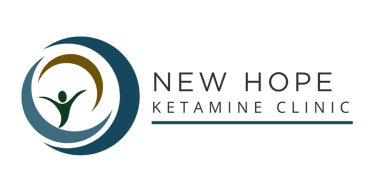Address: 21660 W Field Pkwy, Suite 301, Deer Park, IL 60010

Understanding Mental Health Disorders
Admin
3/7/2024
Mental health disorders are conditions that affect an individual’s thoughts, emotions, and behaviors, often impairing their ability to function in daily life. It’s crucial to understand these disorders to provide support and effective treatment for those affected. Unfortunately, stigma surrounding mental illness persists, hindering awareness and acceptance.
Resistant Depression:
Resistant depression, also known as treatment-resistant depression, is a form of depression that doesn’t respond adequately to standard treatments like antidepressant medications or psychotherapy. Symptoms include persistent feelings of sadness, hopelessness, and loss of interest in activities once enjoyed. Causes may include genetic predisposition, chemical imbalances in the brain, and traumatic life events.
Treatment options for resistant depression include:
– Different classes of antidepressants
– Psychotherapy such as cognitive-behavioral therapy (CBT) or interpersonal therapy (IPT)
– Ketamine infusion therapy has shown promise in treating Resistant depression by rapidly reducing symptoms. Ketamine’s mechanism of action differs from traditional treatments, offering a new avenue for relief.
– Brain stimulation therapies like electroconvulsive therapy (ECT) or transcranial magnetic stimulation (TMS)
– Lifestyle changes including regular exercise, healthy diet, and adequate sleep
References:
– National Institute of Mental Health (NIMH): https://www.nimh.nih.gov/health/topics/depression/index.shtml
– American Psychiatric Association (APA): https://www.psychiatry.org/patients-families/depression/what-is-depression
Obsessive-Compulsive Disorder (OCD):
Anxiety disorders are characterized by excessive worry, fear, or apprehension that is difficult to control and interferes with daily life. Common types include generalized anxiety disorder (GAD), panic disorder, and social anxiety disorder. Factors contributing to anxiety disorders may include genetics, brain chemistry, and traumatic experiences.
Treatment options for anxiety disorders include:
– Therapy such as cognitive-behavioral therapy (CBT) or exposure therapy
– Medications like selective serotonin reuptake inhibitors (SSRIs) or benzodiazepines
– Ketamine infusion therapy has shown promise in treating anxiety disorders by rapidly reducing symptoms. Ketamine’s mechanism of action differs from traditional treatments, offering a new avenue for relief.
– Relaxation techniques such as deep breathing exercises or mindfulness meditation
References:
– Anxiety and Depression Association of America (ADAA): https://adaa.org/understanding-anxiety
– Mayo Clinic: https://www.mayoclinic.org/diseases-conditions/anxiety/symptoms-causes/syc-20350961

Anxiety Disorders
OCD is characterized by intrusive thoughts (obsessions) and repetitive behaviors or mental acts (compulsions) performed in response to those thoughts. Common obsessions include fears of contamination, harming others, or doubts about safety, while compulsions may involve excessive cleaning, checking, or counting.
Treatment options for OCD include:
– Cognitive-behavioral therapy (CBT) with exposure and response prevention (ERP)
– Medications such as selective serotonin reuptake inhibitors (SSRIs) or tricyclic antidepressants
– Ketamine infusion therapy has shown promise in alleviating symptoms of OCD, providing relief for those who haven’t responded to traditional treatments.
– Deep brain stimulation (DBS) for severe, treatment-resistant cases
References:
– International OCD Foundation: https://iocdf.org/about-ocd/
– National Institute of Mental Health (NIMH): https://www.nimh.nih.gov/health/topics/obsessive-compulsive-disorder-ocd/index.shtml
Introduction to Mental Health Disorders
Case Studies and Personal Stories:
Real-life examples of individuals living with resistant depression, anxiety, PTSD, and OCD can provide insight into the challenges they face and the strategies they use to cope and recover. Sharing these stories helps reduce stigma and encourages others to seek help.
Conclusion and Resources
In conclusion, understanding mental health disorders is essential for promoting awareness, acceptance, and effective treatment. Resources like the National Alliance on Mental Illness (NAMI) and the Substance Abuse and Mental Health Services Administration (SAMHSA) offer valuable information and support for individuals and their families affected by mental illness.
Useful Resources:
– National Alliance on Mental Illness (NAMI): https://www.nami.org/
– Substance Abuse and Mental Health Services Administration (SAMHSA): https://www.samhsa.gov/find-help/national-helpline
References:
1. National Alliance on Mental Illness (NAMI): NAMI is a grassroots mental health organization dedicated to providing advocacy, support, and education to individuals and families affected by mental illness. They offer support groups, educational programs, and resources to help combat stigma and promote understanding.
– Website: https://www.nami.org/
2. Mental Health America (MHA): MHA is a leading community-based nonprofit organization dedicated to addressing the needs of those living with mental illness and promoting mental health awareness. They offer resources, screening tools, and advocacy initiatives to combat stigma and support individuals in their mental health journey.
– Website: https://www.mhanational.org/
3. Active Minds: Active Minds is a nonprofit organization that empowers students to speak openly about mental health in order to educate others and encourage help-seeking behavior. They provide resources, advocacy campaigns, and peer support programs to combat stigma and promote mental health awareness on college campuses and beyond.
– Website: https://www.activeminds.org/
4. Bring Change to Mind (BC2M): BC2M is a nonprofit organization founded by actress Glenn Close that aims to end the stigma and discrimination surrounding mental illness through storytelling, education, and outreach. They provide resources, educational materials, and campaigns to promote understanding and acceptance.
– Website: https://bringchange2mind.org/
5. The Trevor Project: The Trevor Project is a leading organization providing crisis intervention and suicide prevention services to LGBTQ+ youth. They offer resources, support, and advocacy initiatives to address mental health stigma and promote acceptance and inclusivity.
– Website: https://www.thetrevorproject.org/
6. Each Mind Matters: Each Mind Matters is California’s Mental Health Movement, dedicated to raising awareness, reducing stigma, and promoting mental health and wellness for all. They offer resources, toolkits, and community engagement programs to support individuals and communities in addressing mental health stigma.
– Website: https://www.eachmindmatters.org/
7. Time to Change: Time to Change is a social movement in England dedicated to ending mental health stigma and discrimination. They offer resources, campaigns, and training programs to empower individuals and organizations to challenge stigma and create more supportive environments for those affected by mental illness.
– Website: https://www.time-to-change.org.uk/
These resources provide valuable support, education, and advocacy initiatives to help combat mental health stigma and promote understanding, acceptance, and support for individuals living with mental illness.
Health Care Professionals' Resources
Sign Up To Receive The Latest Updates On Ketamine Infusion Therapy And Spravato Nasal Spray For Mental Health




Contact Us
21660 W Field Pkwy
Suite 301
Deer Park, IL 60010
Phone:
847-232-4045
Fax:
847-232-4042
Email:
info@newhopeinfusion.com
Treatments
Disclaimer
© 2024. All rights reserved.
Pages
Hours of Operation
Monday 9:00am- 5:00pm
Wednesday 9:00am- 5:00pm
If you or someone you care about is currently facing a crisis, we strongly urge you to contact the National Suicide Prevention Lifeline at 800-273-8255 or call 911 for immediate assistance.
